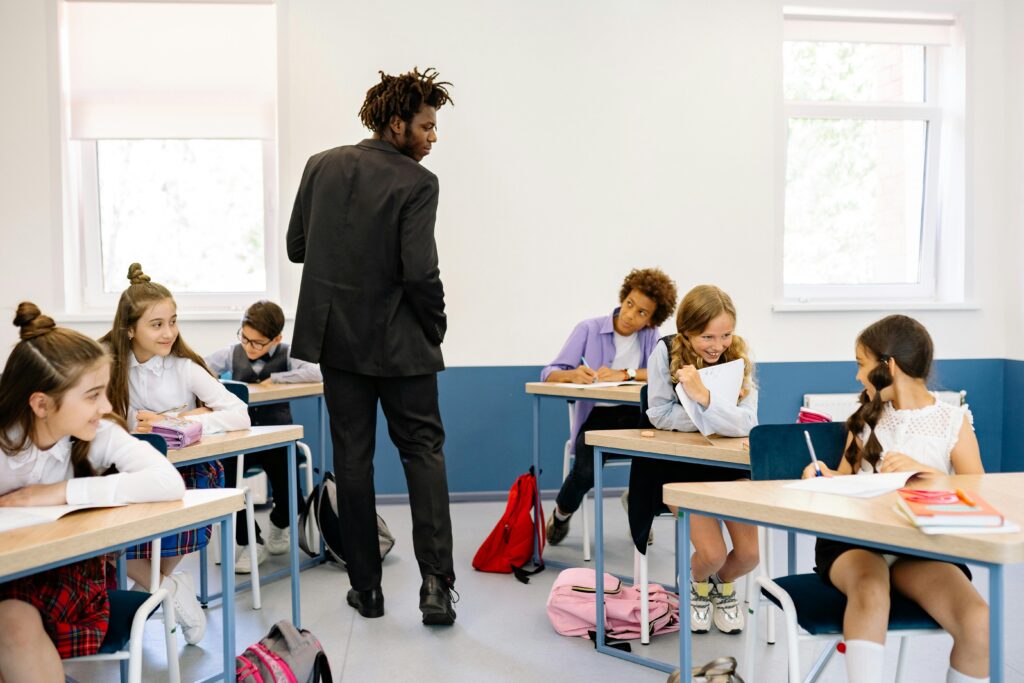Teachers are often the first to notice when a child exhibits behaviors that suggest a lack of healthy upbringing. While every student deserves patience and guidance, certain patterns emerge quickly when a child has not been raised in a supportive or respectful environment. From classroom manners to emotional regulation, these signs offer insight into what may be missing at home. The phrase “raised right” does not refer to wealth or status, but rather to emotional awareness, accountability, and boundaries taught during childhood.
Constant Disrespect for Authority

One of the most noticeable signs is a complete disregard for authority figures. While some pushback is normal, kids who were not raised right often speak to adults with rudeness, sarcasm, or outright aggression. Teachers quickly pick up on these patterns. Studies on child development emphasize the importance of learning respectful communication from parents. When those lessons are absent, children may struggle to see adults as people who deserve kindness or cooperation.
No Sense of Personal Responsibility

Children who have been raised right are taught to own up to their actions. In contrast, students who constantly blame others, make excuses, or lie when confronted usually have not been taught the value of accountability. Teachers often notice this during group projects or discipline discussions. A lack of responsibility can signal that the child’s home environment avoids teaching consequences, which delays emotional maturity and problem-solving.
Read More: 7 Parenting Habits That Push Your Children Away Over Time
Inability to Handle Criticism

A child who bursts into tears, lashes out, or completely shuts down after gentle correction might not be used to being told “no” at home. Kids who were not raised right often associate criticism with shame instead of growth. When a teacher offers feedback and the student responds with hostility or defensiveness, it can be a sign that the child was not guided through disappointment or failure in healthy ways.
Poor Social Skills With Peers

Teachers observe peer interactions closely, and children who were not raised right often stand out because they lack empathy, patience, or cooperation. These students might interrupt others, dominate conversations, or ignore social boundaries. Emotional intelligence is largely taught at home, and when kids do not develop it, their relationships at school suffer. Social struggles are a clear sign that the child may not have been guided in understanding how others feel or think.
No Basic Manners

Saying “please” and “thank you,” not interrupting adults, and waiting one’s turn are small behaviors that reflect how a child was raised. Teachers can tell almost instantly whether manners were a priority at home. A child who demands instead of asks, or who shows no gratitude, signals a lack of modeling from caregivers. Being raised right includes learning respect for others through everyday behavior.
Read More: Psychologists Say These 7 Habits Are a Sign of Great Parenting
Zero Awareness of Boundaries

Whether physical, emotional, or behavioral, boundaries are crucial in a classroom. Children who ignore personal space, talk over others, or make inappropriate comments often show that their home environment lacks structure or guidance. Teachers who see these behaviors repeatedly know the child likely was not raised right. Without boundaries, children struggle with self-control and respecting the limits of others, which becomes obvious in group settings.
Entitlement and Unrealistic Expectations

Some students walk into class expecting special treatment. They may demand higher grades, extra privileges, or exceptions without reason. This entitled mindset is usually learned at home. Teachers recognize when a child has not been raised right because they expect the world to bend to them. Being raised with humility and fairness helps children understand they must earn respect, not demand it.
No Respect for Property

Children who damage school supplies, draw on desks, or destroy classroom materials often reveal deeper issues. Respect for property is a learned value. Teachers know that kids who were raised right understand ownership and responsibility. When a student treats shared items carelessly, it may reflect a home where boundaries, discipline, or consequences are not enforced. These behaviors disrupt learning and show a lack of respect for community.
Constant Need for Validation

A student who needs constant praise or attention may not have received secure emotional grounding at home. Teachers notice when a child cannot focus without external validation or becomes upset when not the center of attention. Children who were not raised right may depend on approval to feel valued. This can lead to emotional instability and difficulty with independent tasks or quiet concentration.
Difficulty Following Rules

Following rules helps children feel safe and structured. When students resist even simple rules like lining up, raising hands, or staying seated, teachers see a pattern. Kids who have not been raised right often see rules as optional. This attitude creates chaos in the classroom and shows the child may not have learned respect for order or community expectations. Consistent boundaries at home help prepare children for social environments like school.
Lack of Emotional Regulation

Emotional regulation is not something children are born with, it is taught. Teachers often see students who scream during minor frustrations, shut down when corrected, or show extreme reactions to normal classroom experiences. These behaviors suggest the child was not raised right with tools to manage strong emotions. Emotional coaching by caregivers is crucial, and when it is missing, the result is outbursts and impulsivity.
How Teachers Notice Who Was Raised Right

Teachers spend more hours with children than many people realize, and their insight is sharp. They see patterns in speech, behavior, and social skills that reflect what goes on at home. A child who was raised right shows emotional stability, respect, and an ability to function within a community. When those qualities are missing, the classroom becomes a mirror of what the child was or was not taught.
Being raised right is not about perfection. It is about consistency, love, structure, and guidance. Teachers are not judging children unfairly, they are responding to the patterns that either help or hinder learning and social connection. When parents model good values, children enter school prepared to thrive. And when they don’t, teachers often carry the extra burden of teaching what should have been taught at home.
In a world where teachers are stretched thin, raising children right is not just a family issue, it is a societal one. Everyone benefits when kids arrive in class ready to listen, grow, and show respect. That foundation begins long before the school bell rings.
Disclaimer: This article was created with AI assistance and edited by a human for accuracy and clarity.
Disclaimer: This information is not intended to be a substitute for professional medical advice, diagnosis or treatment and is for information only. Always seek the advice of your physician or another qualified health provider with any questions about your medical condition and/or current medication. Do not disregard professional medical advice or delay seeking advice or treatment because of something you have read here.

